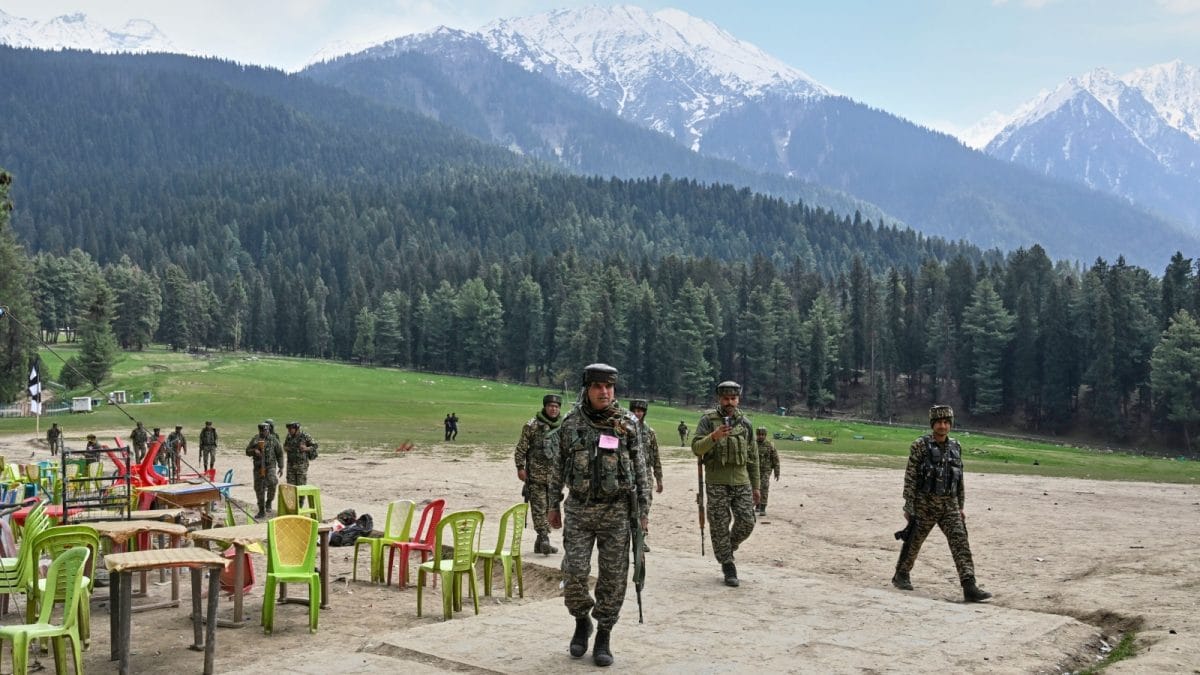Last Updated:
The agenda noted the importance of India-EU ties for strengthening economic growth and security and diversifying supply chains

After terrorists trained in and based out of Pakistan massacred 26 tourists in Baisaran in Pahalgam, India was launched an attack on terror hideouts in the neighbouring country.
The European Commission and the High Representative’s Joint Communication outlining a ‘New Strategic EU-India Agenda’, adopted on Wednesday, termed the April 22 terror attack in Jammu and Kashmir’s Pahalgam as “tragic reminder of terrorism’s human cost”.
While pointing out that both the European Union and India have faced terrorist threats, the agenda said: “The Pahalgam attack in April 2025 was a tragic reminder of terrorism’s human cost. Both partners confront challenges linked to terrorism’s connections with organised crime, as well as the need to combat terrorism financing, online propaganda, and risks posed by emerging technologies.”
Recommended Stories
It highlighted EU’s commitment to “further strengthening counterterrorism cooperation to assess global threats, counter extremism and terrorism financing, and strengthen collaboration through capacity-building efforts, joint projects, and law-enforcement partnerships”.
After terrorists trained in and based out of Pakistan massacred 26 tourists in Baisaran in Pahalgam, India launched an attack on terror hideouts in the neighbouring country.
The new agenda of the EU also focused on advancing trade and investment, strengthening economic security, deepening industrial cooperation and boosting regional connectivity.
The joint communication outlined the EU’s strategic vision for enhancing bilateral cooperation with India amid changing geopolitical realities. It identified five areas of shared interest and complementary strengths, building on existing ties while addressing areas with potential for increased engagement.
The agenda noted the importance of India-EU ties for strengthening economic growth and security and diversifying supply chains, while also highlighting the joint India-EU engagement on global issues and with third partners.
It highlighted significant untapped potential in trade and investment and outlined strategies to strengthen commercial ties, the crux of which are the ongoing negotiations for a free trade deal. The joint communication proposed reinforcing supply chains, promoting critical emerging technologies and engagement on digital issues.
It also deepened tech cooperation, including a potential EU-India Startup partnership, and invites India to associate with Horizon Europe programme. It suggests ambitious initiatives for decarbonisation and the clean transition, such as intensifying cooperation on renewables, developing green hydrogen capabilities and expanding green finance.
The new strategic agenda also encompasses the India-EU Security and Defence Partnership, which is focused on enhancing strategic consultations and joint initiatives, including on crisis management, maritime security, cyber defence, and counterterrorism, and fostering defence industrial cooperation. It also focused on strengthening regional connectivity initiatives like the India-Middle East-Europe Economic Corridor (IMEC), facilitating labour mobility and a framework to reach out to the business community.
Brussels, Belgium
September 17, 2025, 21:02 IST
Loading comments…
Read More



